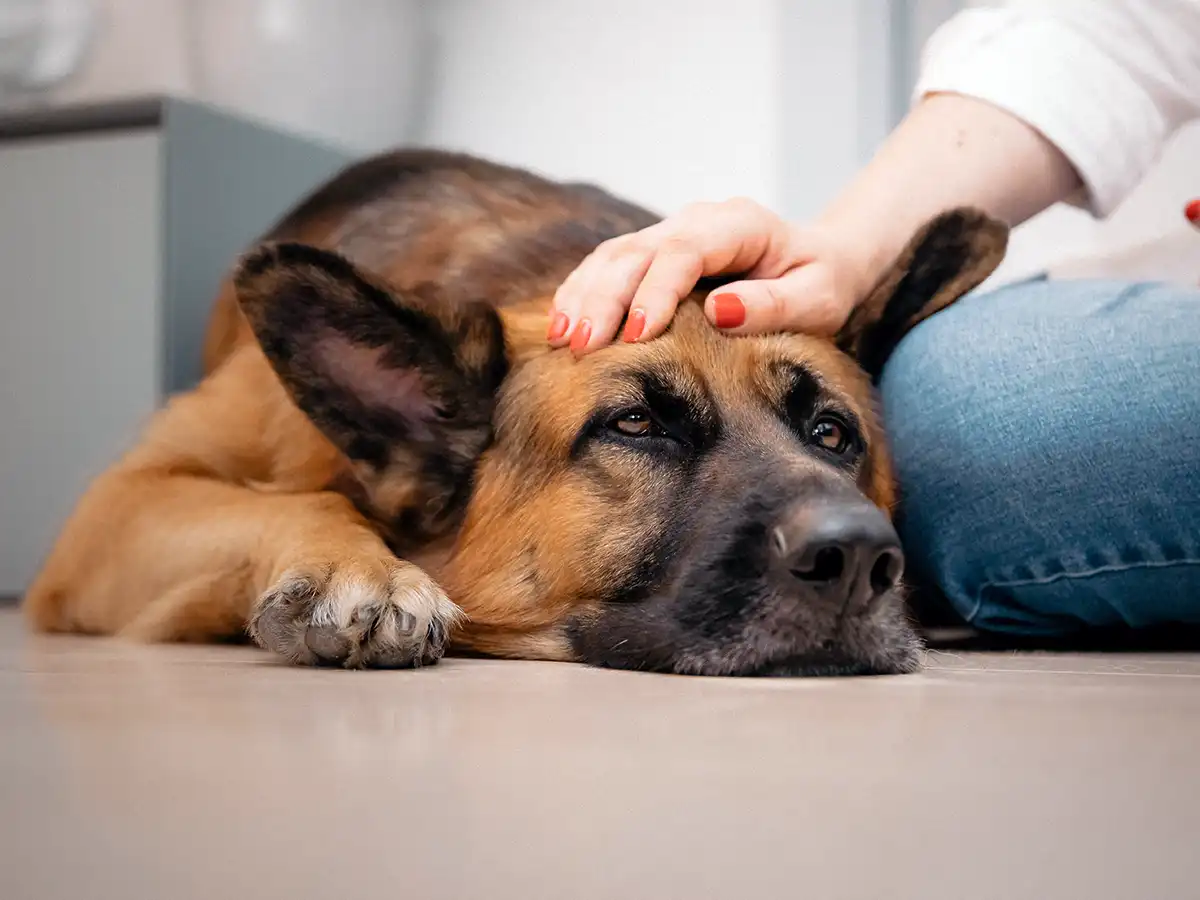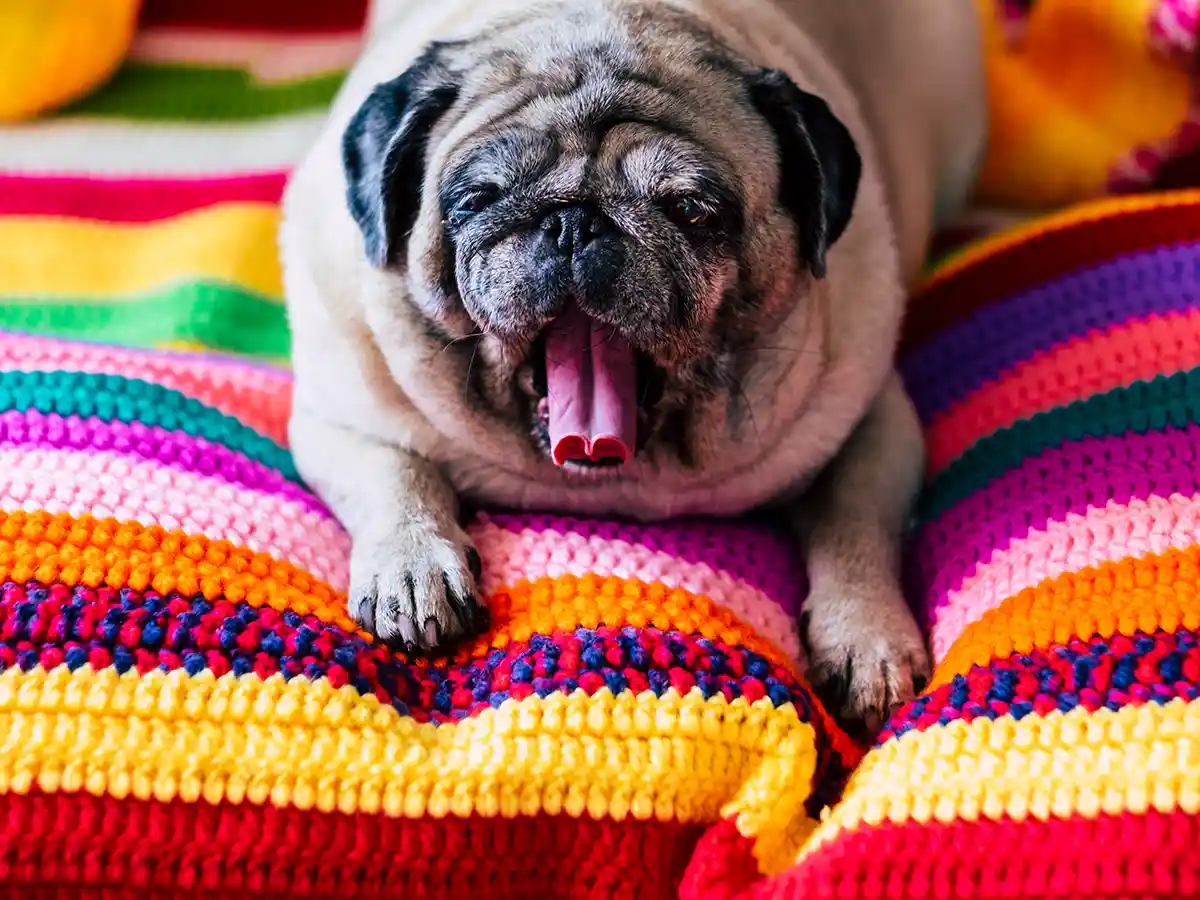Welcome to our comprehensive guide on the German Shepherd lifespan, a topic dear to the hearts of dog enthusiasts worldwide. As you embark on this journey with your German Shepherd, whether male or female, it’s essential to understand the intricacies of their lifespan. Typically, German Shepherds live for 9 to 13 years, but this varies depending on several factors.
Our guide delves into what you can expect as your loyal companion ages and how best to care for them during their senior years. We’ll explore the differences in lifespan between males and females and provide insights into how diet, exercise, and regular veterinary care can significantly impact their longevity.
This article is not just a guide; it’s a tribute to the unique bond you share with your German Shepherd, ensuring you’re well-equipped to make their years as fulfilling and comfortable as possible. Join us in celebrating and caring for these magnificent animals throughout their lives.
What will be covered?
Understanding the German Shepherd’s Life Expectancy

Welcome, dog lovers! Are you curious about the lifespan of your beloved German Shepherd? Well, you’re in the right place. Let’s dive into the world of these loyal and intelligent companions and explore what determines their life expectancy.
Genetics and Lifespan
First things first, genetics play a significant role. Just like us, the lifespan of German Shepherds is influenced by their genes. But don’t worry, it’s not all left to chance. There are ways you can help your furry friend live a longer, healthier life. Generally, the average German Shepherd lifespan ranges between 9 and 13 years. However, with reasonable care, some have been known to reach their teens in fine fettle!
Male vs. Female Lifespan Differences
Now, you might be wondering, “Is there a difference in lifespan between male and female German Shepherds?” Interestingly, there’s a slight difference. On average, female German Shepherds tend to live a bit longer than their male counterparts. It is a common trait in many dog breeds. Male German Shepherds usually have a lifespan of around 9 to 12 years, while females often live from 9 to 13 years.
Health and Longevity
Health is a huge factor. A healthy German Shepherd is a happy one and more likely to live a longer life. Regular vet check-ups, a balanced diet, and plenty of exercise are essential. These dogs are active and need to keep moving to stay in tip-top shape. Don’t forget about mental stimulation, too. Keep their minds busy with training and puzzles. A bored German Shepherd can develop stress, which might affect their health negatively.
The Impact of Diet on Lifespan
Diet is crucial. What you feed your German Shepherd can significantly impact their lifespan. A well-balanced diet, rich in nutrients, keeps them healthy and can prevent diseases. Always choose high-quality dog food and be mindful of their dietary needs as they age. Treats are great, but remember, moderation is key. Overfeeding can lead to obesity, which is a big no-no for a long, happy life.
Exercise and Its Role in Lifespan
Exercise is not just about keeping fit; it’s about longevity. Regular exercise keeps your German Shepherd’s body and mind active. It helps prevent obesity and joint problems and maintains heart health. Tailor their exercise routine to their age and health. Younger dogs may enjoy more vigorous activities, while older ones might prefer leisurely walks.
Mental Health and Emotional Wellbeing-
Mental health matters. German Shepherds are intelligent and sensitive. They thrive on companionship and cognitive engagement. Lack of mental stimulation can lead to stress and anxiety, which can shorten their lifespan. Spend quality time together, engage in training, and provide them with interactive toys. A happy dog is a healthier dog.
Regular Vet Visits
Regular vet visits are essential. Early detection of any health issues can make a big difference. Your vet can also guide you on the best care practices for your German Shepherd, tailored to their age and health status. Remember, prevention is better than cure.
Factors Influencing a German Shepherd Lifespan
Welcome to our deep dive into the factors influencing a German Shepherd lifespan! We love our furry friends and want them around as long as possible, right? So, let’s explore what affects their longevity. It’s not just about counting candles on their birthday cake!
Genetics: The Blueprint of Life
First things first, genetics play a huge role in a German Shepherd lifespan. Think of it as their life blueprint. These genes come from their parents, just like us! They can inherit good genes and, unfortunately, some not-so-good ones. It’s a genetic lottery! is why it’s essential to know about their family tree. A German Shepherd lifespan typically ranges, with males and females having slight differences. Males usually have a lifespan of around 9-13 years, while females can often live a bit longer.
Diet: Fuel for a Healthy Life
Now, let’s talk about diet, a biggie in the world of a German Shepherd lifespan. You are what you eat, and this is true for your German Shepherd, too! A balanced diet keeps them in tip-top shape. Imagine fueling a sports car with the wrong gas; it won’t run well, right? The same goes for your dog. High-quality dog food, rich in nutrients, can work wonders. It supports their overall health, keeping them active and happy for years.
The Right Nutrition
When it comes to nutrition, think variety and balance. Proteins, fats, carbs, vitamins, and minerals are all essential. Each stage of their life needs different nutrients. Puppies need more energy-giving foods, while seniors might need something gentler. Remember, what’s good for a German Shepherd lifespan male might differ slightly from a German Shepherd lifespan female. They’re similar, but each dog is unique!
Exercise: Keeping Fit and Fabulous

Exercise is a must for these energetic pups. A German Shepherd loves to run, play, and stay active. Regular exercise keeps their heart healthy and their muscles firm. It’s not just about physical health, though. Exercise also keeps their mind sharp and spirits high. Think of it as a gym session for their body and brain. A well-exercised German Shepherd is a happy, healthy one.
Tailoring Exercise Needs
But remember, not all German Shepherds are Olympic athletes! Tailor their exercise to their age, health, and energy level. Puppies are little balls of energy, while seniors might prefer a stroll. The key is consistency. Regular, appropriate exercise can positively impact a German Shepherd lifespan. It’s a simple recipe for a longer, happier life.
Veterinary Care: A Healthy Partnership
Regular check-ups with the vet are crucial. Think of your vet as your partner in your German Shepherd’s health journey. They catch things you might miss, from dental issues to hidden health problems. Early detection can make a big difference in treatment. It’s not just about dealing with sickness; it’s also about preventing it. Vaccinations, flea control, and regular health screenings are all part of the package.
Preventive Care Matters
Preventive care is like a health safety net. It’s about stopping problems before they start. This includes everything from regular dental cleanings to heartworm prevention. Keeping up with these preventive measures can extend a German Shepherd lifespan. It’s an investment in their health and happiness!
The Love Factor: Emotional Wellbeing
Let’s not forget the love factor. Yes, love and attention play a big part in their well-being. German Shepherds thrive on companionship and bonding. They’re not just pets; they’re family. Regular playtime, cuddles, and positive interactions boost their mood. A happy dog is often a healthier dog. Love might not be a cure-all, but it sure helps!
Final Thoughts
In conclusion, a German Shepherd lifespan is influenced by a mix of genetics, diet, exercise, veterinary care, and, of course, love. It’s about creating a healthy, happy environment for them. Each factor plays its part in weaving the tapestry of their life. Let’s cherish every moment with our faithful companions and give them the best life possible!
Remember, every German Shepherd is unique. What works for one might differ for another. Keep these factors in mind, and you’re on the right track to maximizing the years you have with your furry friend. Here’s to many more tail wags and wet-nosed kisses!
Health Tips to Extend Your German Shepherd’s Life

You’ve probably heard the saying, “You are what you eat.” Well, this holds for your German Shepherd, too! To enhance the German Shepherd lifespan, start with what’s in their bowl. A balanced diet, rich in essential nutrients, is a game-changer. It’s not just about filling their stomach; it’s about nourishing their body. Opt. for high-quality dog food that suits their age, size, and activity level. For male German Shepherds, who may be more active, they might need more calories. Female German Shepherds, on the other hand, could benefit from a diet tailored to their slightly less robust constitution. Remember, a well-fed dog is a healthy dog!
Exercise: More Than Just a Walk in the Park
Let’s face it: a lazy dog is not a happy dog, especially when we talk about German Shepherds. These energetic canines need regular exercise to keep their minds and bodies in top shape. Don’t just think about the physical benefits! Exercise also plays a crucial role in mental health. A tired German Shepherd is a content one. Whether it’s a brisk walk, a game of fetch, or agility training, keep them moving. The right amount of exercise can significantly impact the German Shepherd’s lifespan, keeping both male and female Shepherds healthier for longer. So, lace up those sneakers and get going with your furry friend!
Regular Vet Visits: A Non-Negotiable
We all know that prevention is better than cure. This couldn’t be truer for your German Shepherd’s health. Regular check-ups with the vet can catch potential health issues early. This is crucial for both male and female German Shepherds, as they might face different health challenges. For instance, females might be prone to certain hormonal conditions, while males might have other concerns. These visits are your chance to discuss anything from vaccination schedules to diet and exercise. Plus, it’s an excellent opportunity to ask about ways to enhance the German Shepherd’s lifespan further. Keep up with these appointments – they’re vital!
Now, let’s dive deeper into these health tips and see how they can specifically help increase the German Shepherd lifespan.
Dive Deeper: Specific Health Tips
Nutrition: Tailor-Made Diets
We can’t stress enough how crucial proper nutrition is. But remember, each dog is unique. A diet that works wonders for one German Shepherd might not be the best for another. Consider their life stage, health condition, and even their temperament. For instance, a high-energy male German Shepherd might need more protein and fat in his diet. On the other hand, a female German Shepherd, especially if she’s a bit more sedentary, might do better with fewer calories to avoid weight gain. Always consult with your vet to tailor the diet to your dog’s specific needs.
Exercise: Balance is Vital
While exercise is essential, it’s equally important not to overdo it. German Shepherds, known for their athleticism, can sometimes push themselves too hard. As an owner, you should ensure a good balance between vigorous activities and rest periods. This is especially true for younger dogs whose joints and bones are still developing and for older dogs who might not be as spry as they once were. Regular, moderate exercise can help maintain a healthy weight, which is crucial for both male and female German Shepherd lifespan.
Regular Vet Visits: Beyond the Basics
During vet visits, go beyond the routine checks. Discuss things like dental care, which is often overlooked but immensely important. Dental issues can lead to more severe health problems, impacting the German Shepherd lifespan. Also, talk about breed-specific concerns. German Shepherds, for example, are prone to hip dysplasia, so ask your vet about preventative measures and early signs to watch out for.
Ageing Gracefully: Caring for a Senior German Shepherd
As your German Shepherd steps into their senior years, it’s essential to adjust your care approach to accommodate their changing needs. This doesn’t just mean being attentive to their health; it’s also about ensuring their continued happiness and comfort. Remember, the German Shepherd’s lifespan can vary, with the average for both males and females typically ranging between 9 to 13 years. But with your loving care, these golden years can be some of the most rewarding times for both of you.
Understanding Age-Related Changes
First, let’s acknowledge the changes that come with age. You might notice your German Shepherd moving a bit slower, or perhaps they’re not as enthusiastic about those long hikes as they used to be. This is normal. As they age, their energy levels and physical capabilities change. This doesn’t mean they’ve lost their zest for life; they just express it differently. Pay attention to these subtle shifts in behavior and activity levels – they’re vital indicators of your dog’s evolving needs.
Adapting to Their Needs
Adapting to your ageing German Shepherd’s needs is crucial. This might mean shorter, more frequent walks instead of long treks. Their diet might also need a tweak. Senior dogs have different nutritional requirements, so consider switching to a diet formulated for older dogs. Remember, a balanced diet is a cornerstone of extending the German Shepherd lifespan.
Also, don’t forget about their comfort at home. As they age, German Shepherds may develop joint issues like arthritis. Making their living space more accessible, like providing them with a comfy, orthopaedic dog bed, can make a world of difference.
Regular Health Check-Ups
Regular vet visits become even more important for senior German Shepherds. These check-ups can help catch any health issues early on, which is vital for managing conditions commonly seen in ageing dogs. Discuss with your vet about the common health concerns based on the German Shepherd lifespan, especially noting any differences between male and female dogs. Early detection and treatment can significantly impact their quality of life in their senior years.
Mental Stimulation and Emotional Bonding
Don’t underestimate the power of mental stimulation and emotional bonding. Older German Shepherds, much like humans, benefit significantly from cognitive engagement. Simple activities like puzzle toys or gentle play sessions can keep their minds sharp. Equally important is the emotional bond you share. Spend quality time with your furry friends; your presence and affection mean more to them than you might realize.
Preparing for the Inevitable
While it’s tough to think about, being prepared for the end of your German Shepherd’s life is a part of responsible pet ownership. Understanding the typical German Shepherd lifespan can help set realistic expectations. Whether it’s a male or female, knowing what’s normal for their age can help them provide the best care during their final years.
Celebrate their life, cherish the moments you have together, and when the time comes, ensure their passing is as peaceful and dignified as possible. Remember, the bond you’ve built over the years doesn’t end with their passing. It’s a beautiful, everlasting memory of love and companionship.
A Life Well-Lived
Caring for a senior German Shepherd is about helping them age gracefully and comfortably. It’s a journey filled with love, learning, and adapting. By understanding their needs, providing proper care, and cherishing every moment, you’re giving your faithful companion the best possible life in their twilight years. The German Shepherd lifespan, whether it’s for a male or female, is a journey we’re privileged to share with these magnificent animals. Let’s make every year count!
Conclusion
In understanding the German Shepherd lifespan, we realize it’s a journey filled with care, love, and understanding. Whether you have a male or female German Shepherd, their lifespan, typically between 9 to 13 years, is significantly shaped by how we care for them. This guide has highlighted the importance of tailored nutrition, regular exercise, and consistent veterinary care as critical factors in enhancing life quality and longevity.
As German Shepherds age, their needs change. Adapting to these changes is crucial for their well-being. Providing a balanced diet suitable for their age, ensuring they have a comfortable living space, and giving them the right amount of exercise and mental stimulation are all parts of this adaptation. Regular health check-ups become increasingly essential to manage any age-related conditions effectively.
Finally, the bond we share with our German Shepherds is invaluable. Cherishing every moment, from their youthful days to their senior years, contributes significantly to their emotional well-being. As they age, this bond deepens, and our understanding of their needs becomes more intuitive. Preparing for the inevitable is a part of the journey, but with each day, we create lasting memories. Caring for a senior German Shepherd is about helping them age with dignity and comfort, ensuring we make every year of their lifespan count. Let’s embrace this journey with our German Shepherds, making each moment memorable and filled with love.

Meet Biplab Roy, the passionate voice behind our blog’s delightful tales of furry and feathered companions. As the proud owner of a charming pet shop and a thriving farm, Biplab’s life revolves around the enchanting world of pets. With a heart full of love for animals and a wealth of experience in caring for them, Biplab brings a unique perspective to our community of pet enthusiasts.
Biplab’s journey into the realm of pets began with a deep-seated affection for these lovable creatures. His pet shop isn’t just a business; it’s a sanctuary for pet lovers seeking advice, supplies, and a warm community. From chirpy birds to playful puppies and everything in between, Biplab’s shop is a haven for those who share his passion.
But Biplab’s connection with animals doesn’t end at the pet shop door. His bustling farm is a testament to his commitment to providing a happy and healthy life for all creatures under his care. Whether it’s the joyous barks of dogs or the gentle clucking of hens, Biplab’s farm is a symphony of harmonious coexistence.
Through the pages of our blog, Biplab shares his insights, anecdotes, and valuable tips on pet care, drawing from his hands-on experience as a devoted pet owner and caretaker. His articles are a delightful blend of heartwarming stories, practical advice, and a genuine love for the diverse world of pets.
Join Biplab on this journey as he explores the ups and downs of pet ownership, offering a warm and knowledgeable companion for fellow pet enthusiasts. Whether you’re a seasoned pet owner or considering bringing a new furry friend into your life, Biplab’s words are sure to resonate and inspire, making your journey into the wonderful world of pets even more rewarding.






